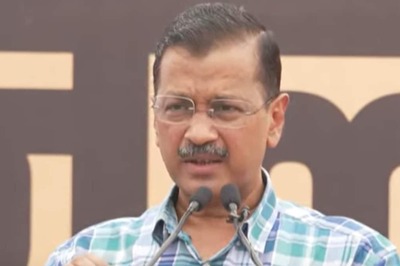
views
New Delhi: The transgender community in India took to social media on Monday to urge President Ram Nath Kovind to stop a bill that aimed to protect them, required them to register to be legally deemed trans and failed to crackdown on sexual abuse.
Tagging the president's Twitter handle and using #StopTransBill2019, trans people, campaigners and supporters tweeted against the Transgender Persons Bill, which was passed by the Parliament last week amid protests.
To become law it now needs to be signed by the President, who holds a largely ceremonial position with few bills vetoed in the past.
"(The bill) is high on rhetoric & low on real commitment towards justice," tweeted Meera Sanghamitra, a trans woman and activist from the National Alliance of People's Movements.
The trans community called for the bill to be sent back to the Parliament for review and a comprehensive law based on their recommendations be passed.
The Supreme Court gave transgender people "third gender" recognition in 2014 but they are often shunned by their families and confined to the margins of society, forcing them to resort to begging or sex work to surviv
A 2011 census recorded half a million transgender people in India but campaigners estimate the number at about 2 million. Less than half are literate and even fewer have jobs, according to the census.
The government said in a statement after the bill was passed that the legislation set out to protect them from discrimination in education, employment, healthcare and housing.
It will "benefit a large number of transgender persons, mitigate the stigma, discrimination and abuse against this marginalized section and bring them into the mainstream of society", the government said.
But trans campaigners said they were concerned about the limits on self-determining their own gender and on their safety.
A trans person would have to obtain an identity certificate from a district magistrate to be declared transgender, according to the bill, and give proof of having undergone sex reassignment surgery if they then wanted to be listed as male or female.
The bill made no mention of whether sex-reassignment surgery would be provided free or at subsidised cost.
The bill states sexual violence against trans people will lead to the imprisonment of six months to 2 years - compared with up to seven years jail for sexual violence against women.
It also requires transgender people to live with their birth families or move to rehabilitation homes, sparking fears among trans campaigners that this could lead to further violence.
"Birth families are often the first site of violence against these individuals," said independent transgender activist Karthik Bittu Kondaiah.




















Comments
0 comment